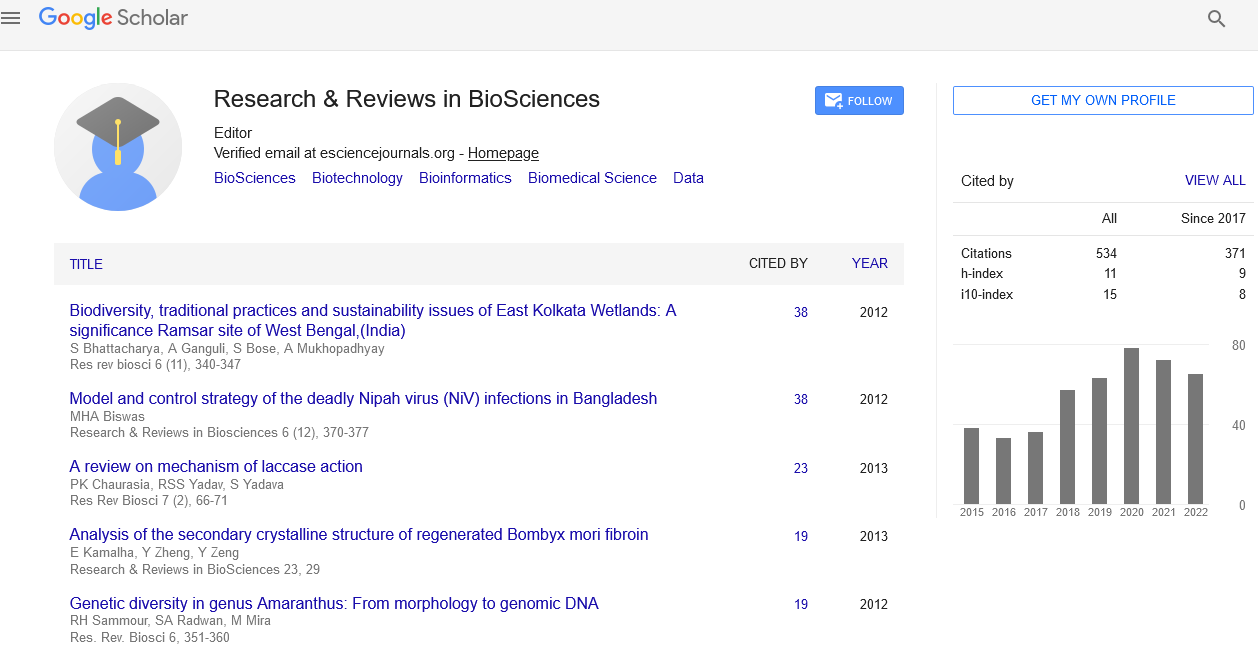Abstract
Seed Dormancy Breaking of Heracleum persicum L. A Medicinal Plant
Author(s): SeyedMehdi Razavi and Maedeh NejhadiHeracleum persicum Desf. (Apiaceae) is one of most widespread species of the genus which is native in Iran, Iraq and Turkey. The whole plant is characterized by anise odor, and its fruits are used for the preparation of pickles as spices in Iran, where named as golpar. Seeds of H. persicum were sterilized by NaOCL1% for 5 min. Treatments as cold stratification (4°C), altering temperature (15/4°C), light/darkness and various concentration of GA3 were subjected to seeds. After each treatment seeds were transferred to germinators with constant temperature of 25°C, and relative humidity between 75%. Germinated seeds were counted after 21 days. On the other hand, after each time course, ten seed were chosen and their embryos excised and measured. Our results showed that cold stratification at 4°C has induced seed germination in H. persicum. Maximum germination was occurred after 16 weeks of stratification up to 12.5%. Treatment of seeds by altering temperatures (15/4°C), caused dormancy breaking and promoted seed germination up to 5%. The results of embryos morphology showed that embryo length of H. persicum had increased approximately 500% during 16 weeks of cold stratification at 4°C. It was concluded that the seed dormancy of H. persicum is of deep complex morphophysiological type that can be broken only by relatively long period of chilling.
